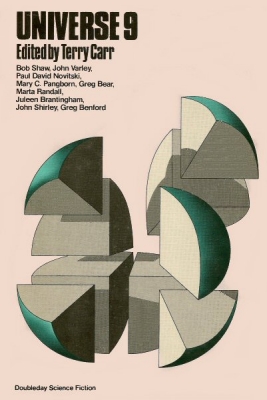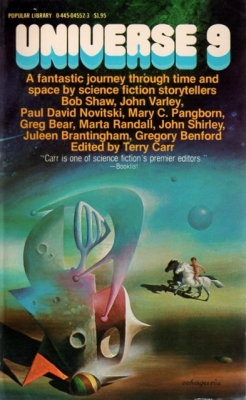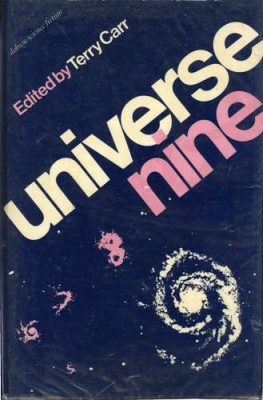The Golden Age of Science Fiction: Universe 9, edited by Terry Carr
The Locus Awards were established in 1972 and presented by Locus Magazine based on a poll of its readers. In more recent years, the poll has been opened up to on-line readers, although subscribers’ votes have been given extra weight. At various times the award has been presented at Westercon and, more recently, at a weekend sponsored by Locus at the Science Fiction Museum (now MoPop) in Seattle. The Best Anthology Award dates back to 1976, although it was not presented in 1978. The inaugural award went to the anthology Epoch, edited Roger Elwood and Robert Silverberg. The 1980 award was won by Terry Carr for Universe 9. It was Carr’s third win in a row, with his first two being for entries in his Terry Carr’s Best Science Fiction of the Year series. The Locus Poll received 854 responses.
Terry Carr’s Universe series of anthologies ran for 17 volumes, beginning in 1971 and only ending with Carr’s death in 1987. During that time, he also edited 16 volumes of Terry Carr’s Best Science Fiction of the Year, five volumes of Fantasy Annual, and two volumes of The Best Science Fiction Novellas of the Year. Sixteen of the volumes of Universe ranked in the Locus Poll (only Universe 7 missed out), and Carr won the Locus Poll for entries of Universe for volumes 1, 4, and 9. In four years, Carr’s best of year anthology beat out his own Universe anthology in the poll.




